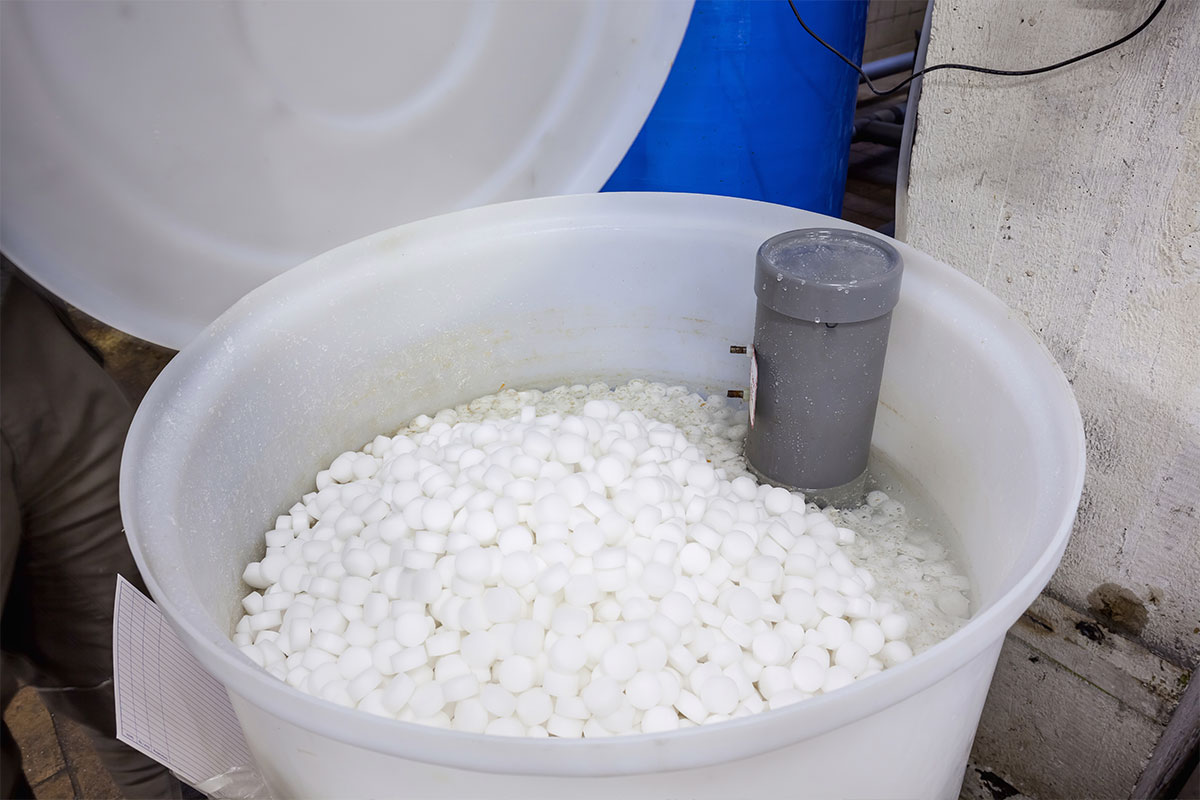When dealing with a water softener, one of the most important aspects is the correct use of salt. Many users wonder how much salt they should add to their water softener. The answer to this question can be a bit complicated because it depends on many factors, such as the size of the softener, the hardness of the input water, as well as the amount of water we use.
The role of salt in the water softening process
Before we get into the details of how much salt is needed for a water softener to function properly, it is important to understand the role salt plays in this process. Salt is used in water softeners because it is a key ingredient in a process called regeneration.
In water softeners there is an ion exchange resin that has the ability to bind calcium and magnesium ions - hard minerals that cause water hardness. Over time, the ion exchange resin fills up with these ions and loses its ability to further soften the water. Then the regeneration process takes place, which consists in rinsing the resin with brine. Salt, thanks to its chemical properties, is able to "wash out" calcium and magnesium ions from the resin and restore its ability to soften water.
This is why salt is so important in water softeners. Without it, the ion exchange resin would not be able to effectively soften the water. Therefore, adding the correct amount of salt is a key part of properly maintaining your water softener.
How much salt should I add to the water softener?
The first factor that affects the amount of salt that we should add to the water softener is the size of the device itself. Larger water softeners require more salt because they have a greater capacity of ion exchange resin to regenerate. For example, a standard household water softener may require 10 to 20 kg of salt per month, but these figures may vary depending on the model of the device. Do not add more salt than half the capacity of the salt container.
Salt and hardness and water consumption
The second factor is the hardness of the input water. The harder the water, the more frequent regeneration and more salt is needed for the regeneration process. In the case of very hard water, you may need up to twice as much salt as in the case of medium-hard water. It is therefore important to regularly test the hardness of the water in order to be able to adjust the regeneration frequency.
Last but not least is the amount of water we use. If we use a lot of water, for example in a large household or in industry, we will need to add salt to the softener more often. Otherwise, if the water consumption is low, the salt in the softener may last longer.
Salt scaling in the water softener tank
It's important to remember that adding too much salt to your water softener is not a good idea. Too much salt can lead to a phenomenon called "scaling", which is the formation of a hard salt deposit at the bottom of the brine tank. Salt scaling can lead to problems with the regeneration of the ion exchange resin and result in insufficient water softening.



